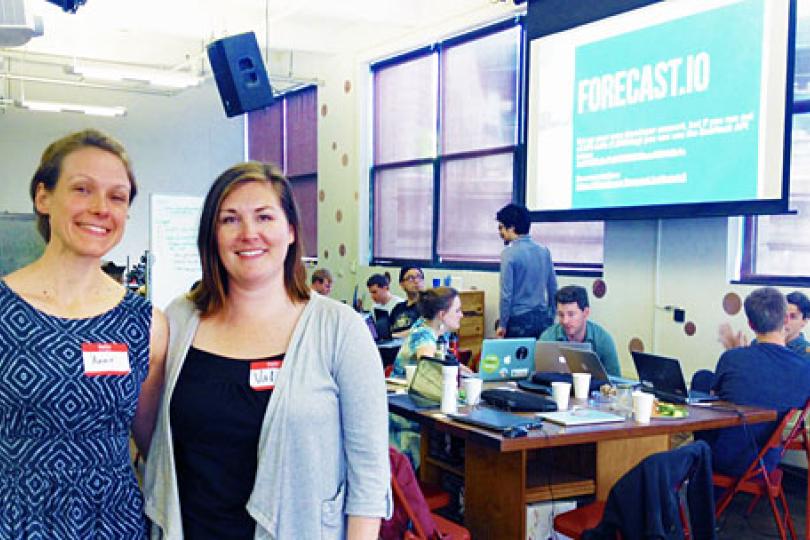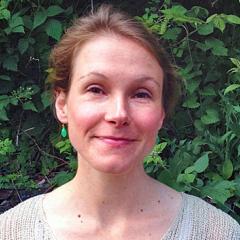The Value of the Unconference
On May 9th and 10th, 2013 Fellows Anne Clark Baker and Valerie Moye traveled to Brooklyn, New York, and enjoyed working together at EcoHack, a worldwide event with simultaneous ‘hack-a-thons’ in San Francisco, New York City, Sao Paolo, and Madrid.
Baker attended as a participant, and Moye attended as a project leader for the Open Carbon project, a website in development to provide municipalities with simple data standardization and visualization tools to aid transparent reporting of greenhouse gas emissions.
The EcoHack event was framed as an “unconference,” and focused on bringing people from many disciplines and backgrounds together to dedicate their skills to the development of technology-based environmental projects. Attendees included scientists, environmental managers, graphic designers, web developers, computer programmers and GIS specialists. There were no expensive hotel rooms or corporate slogans - just pizza, beer, and a room full of excited people ready to get their hands dirty for a weekend of creative work.
For project leaders at the event, it was a chance to practice articulating a message and a technical goal to a diverse group, and to then spend a day working with that group to conceptualize and build a high-tech product. For the participants, it was a chance to apply their unique skills and knowledge and to take part in the ongoing dialogue about how new technologies can accelerate positive environmental outcomes.
The goal of the Open Carbon project, for instance, is to modernize and standardize the way municipalities report their citywide greenhouse gas emissions. A typical city will publish a static PDF report about emissions, but our goal was to liberate the “raw” emissions data for use across numerous computer applications and databases – even those that haven’t been developed yet!
We drew inspiration from other successful data standardization initiatives, such as the one lead by the Google and Portland’s TriMet transit agency to create a common technical format for public transit schedules. Now over 700 transit agencies utilize this standard, incorporating public transit into Google Maps and other transportation apps.
To demonstrate how we could begin innovating with emissions data, our EcoHack team focused on building a data visualization app that could take any city’s standardized emissions data and produce a series of easy to read charts and graphs. We aimed to show emissions broken down by sector, by energy source, and emissions trends relative to the city’s reduction goals.
Overall, it was an exhilarating and rare opportunity to see how much can be accomplished and learned in one day when a group of people with diverse skills come together as active participants rather than passive audience members. In today’s world data management, analysis and communication can be very expensive and rapidly evolving. We found the “unconference” model to be a great way to incubate and expand the technology component for many emerging environmental projects.


